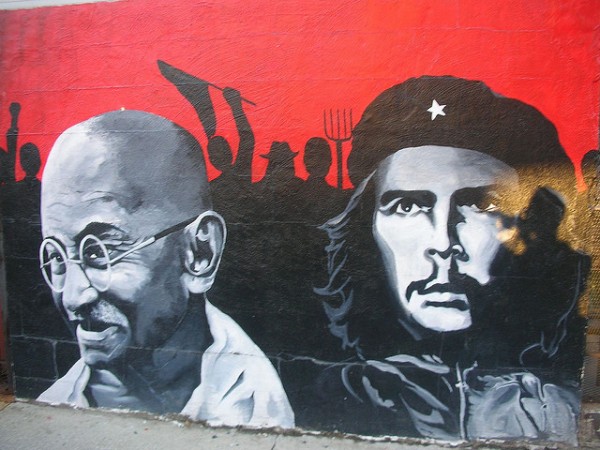
It’s easy to criticise, to take down, to undo. It’s easy to deride and scorn and demean. And it’s easy to cut another through with sharp words and careless phrases.
But these are the tools of the indolent mind, of the uninspired, of the uninspiring. They’re tools best left on the shelf and, better still, consigned to the past.
It’s easy to fight against everything and yet find ourselves standing for nothing.
Knocking down a building will always be easier than building one. Tearing down takes brute force but building up takes imagination, inspiration and creativity.
Still, some things in life are frustrating, and annoying, and aggravating. They arouse passions, fuel fears and provoke anger. With these deep emotions comes the desire to lash out and attack, as if we’re still bound by an instinct to either fight or flight.
If that which annoys and frustrates us is attacked with sufficient vigour, vitriol and venom then the frustration must surely be erased. At least that’s the path our coursing, pulsating emotions would have us take.
Yet, that path rarely resolves the frustration. Instead attacks often become personal. People get hurt. Passions are inflamed even further.
And all too often frustrations are vented with no commitment to producing something better, to creating worthwhile change.
It’s at the point of venting frustrations we get to choose. Either we take a stand for the change we want or take a stand for being a complainer. The latter is easy, the form takes effort and commitment.
For to complain and vent frustration without offering a solution, without thought to the consequences of our bleating, is to be little more than a spoilt brat. It’s childish and never achieves the desired outcome.
Recognising that something isn’t working is one thing, but looking at the object of our frustrations through the eyes of others takes mature thought, effort and insight.
Still, identifying frustration is only the first step. Owning our frustrations is another thing entirely. These are our frustrations, no-one else’s. Attempts to say that “everyone else feels this way” is to project our fears and anxiety onto others. But that projection changes nothing. They’re our frustrations and ours alone.
And yet owning our frustrations but doing nothing is amoral. It lacks courage and heart.
The alternative is to own our frustrations and while offering something new, something that works for all concerned.
To do so takes creativity and imagination. It takes understanding and a mature world view. And it takes courage to propose something that others might criticise.
But that’s a risk worth taking, for no change ever started with someone carping and moaning. Indeed, our obligation, if we’re to call ourselves leaders, is to communicate a compelling, enticing vision for the future, one that’s based on shared interests and lasting human values.
That’s what I want to be part of, a community of leaders committed to something bigger than pay slips and short term profits, a community of leaders who can see past self-interest and short term personal gratification.
Photo credit: puroticorico on Flickr
